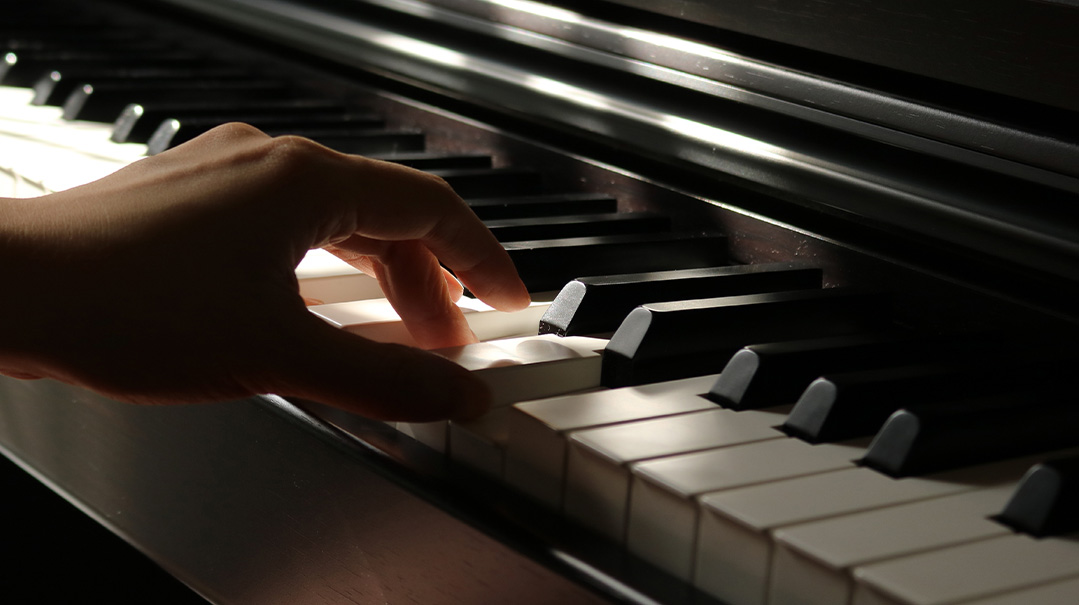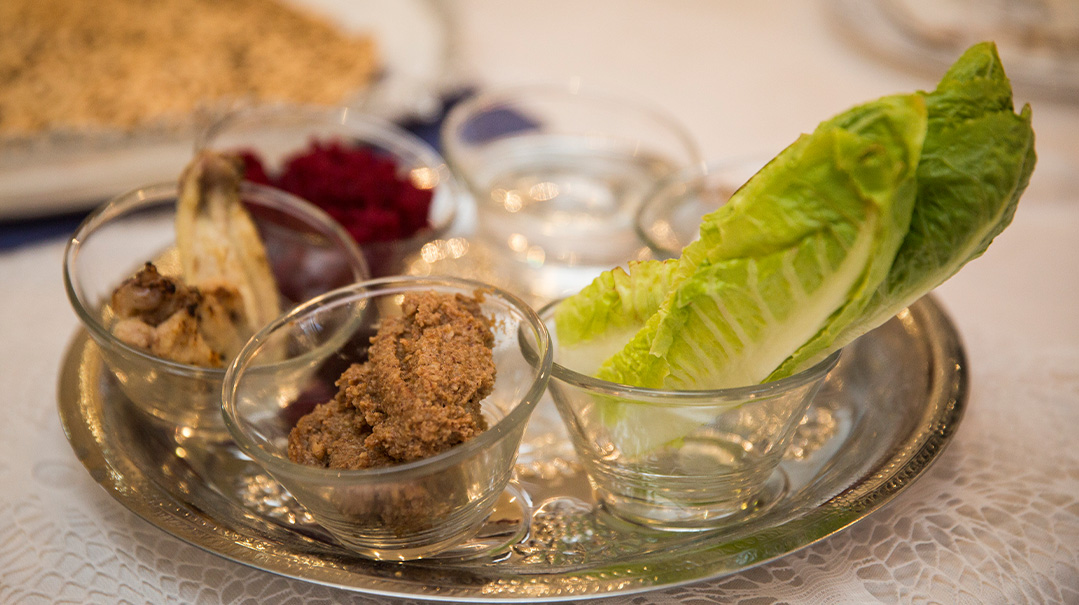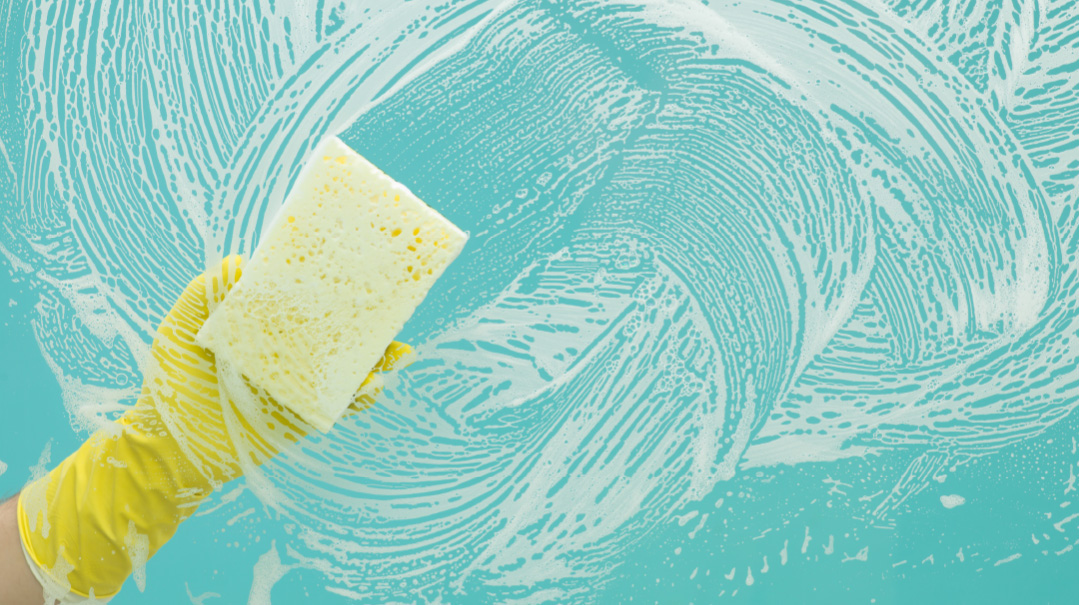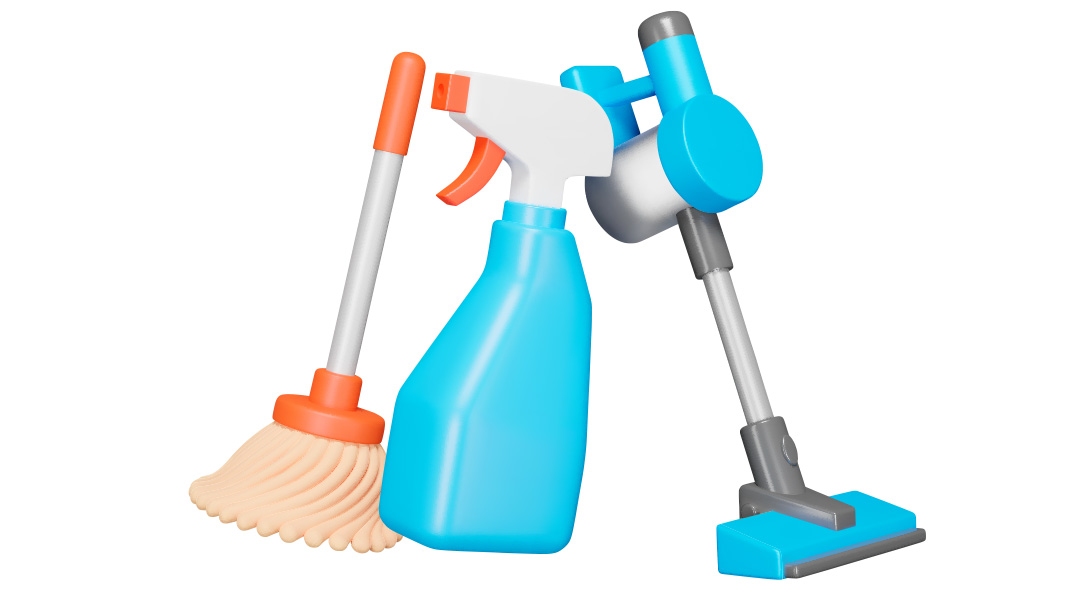A New Stage
| January 10, 2023I was an opera singer. Then Torah helped me find my voice

As told to Chani Leiser by Alicia Ferraro
I
grew up far from Torah Judaism, and far from the limelight.
I was born in Asunción, the capital city of Paraguay. My childhood was sweet — my parents were warm, supportive people whose top priority was family. They deeply valued being Jewish. But about Torah and mitzvos, I knew little.
Growing up, there was always music in the background. My mother studied at a music conservatory and was a voice training teacher. From an early age, I was exposed to classical music. I remember watching my maternal grandmother working around the house: Every so often, she would walk over to the piano, play a few keys, then return to her tasks. My father was a biochemist by trade, but he also came from a musical family.
The Jewish community in Asunción was small and unified; there were only a thousand people in all. It was established by Jews who fled from Europe before and during World War II. My grandfather was one of those Jews. His name was Rabbi Yaakov Staver, and he was devoutly religious. With the other refugees, he worked hard to collect one penny after another. He planned to use his savings to rescue his relatives who stayed behind in Europe. He managed to bring two sisters over, but the rest of the family perished by murder or hunger.
Immigrants from Eretz Yisrael reached the shores of Paraguay, too. My paternal grandmother’s family came from Tzfas, my maternal grandmother’s family from the Old City. These Jews were compelled to move because of the plagues, illnesses, and severe poverty of Eretz Yisrael in those days.
Only my grandfather and two other refugees were genuine shomrei Torah u’mitzvos. The rest of the refugees didn’t observe mitzvos. Most of the Jews were simply ignorant. They fasted on Yom Kippur but drove to shul. They had no exposure to learned rebbeim.
Despite their lack of knowledge, they firmly attached themselves to the ideal of maintaining a separate Jewish identity. In a city teeming with gentiles, they built a Jewish school to create an “island of security” against the dangers of assimilation. The school was called Noah’s Ark, and, growing up, I was one of 120 students there.
To this day, I am moved by the mesirus nefesh of the parents, all of them secular, to support the school. Tuition was high because the school covered payroll for the whole staff. Some years, my grade had just five students, but we had 12 teachers, plus the administrative staff.
These were not bourgeois parents looking for an elitist education in prestigious private schools. Most were working people, and some even struggled to make a living. My aunt recently told me that when she came to the school office to pay her tuition, she would cry all the way home, praying that she would be able to pay the next month’s tuition as well.
It was paradoxical: On one hand, there was such ignorance and such a disconnect from anything holy, but on the other hand, there was real mesirus nefesh to prevent us from assimilating with our non-Jewish neighbors.
The principal of our school was a shaliach who came especially from Israel. A traditional Jew, he taught us Hebrew and Tanach. Most of all, he imbued us with a love for the Land. Though we lived in Paraguay, we understood that our land was Eretz Yisrael.
Every day in school, there was an assembly in the big hall, which included morning prayers. We were introduced to formal tefillah and, from the start, I was drawn to the words of the siddur.
But it was from my elderly grandfather, Rabbi Yaakov Staver, that I learned to daven. At night, he would go out to the garden and speak to Hashem, weeping to Him. Even as a small child, I understood in my young mind that these were sublime moments of closeness to Hashem.
I later learned that as a young man my grandfather had tried to leave Paraguay to join the strong chareidi communities in Brazil and Argentina. But en route, he contracted a severe eye infection. When he reached the border, the border patrol refused to allow him to cross.
My grandfather cleaved to his faith even though he was alone on the front, with only two other peers in Asunción who had remained steadfast in their commitment to Torah and mitzvos. It’s from him that I later drew the strength to form my own connection with Hashem.
For the eight years that I was at Noah’s Ark, I was in a nurturing Jewish environment. But upon graduating, I enrolled in the local high school, a non-Jewish school, where all the Jews went to continue their studies.
Until then, we’d been very separate from the non-Jewish residents. We didn’t even have a relationship with our neighbors, except for one seamstress to whom we’d go back and forth, but without speaking an extra word to her. But now I would be spending most of my waking hours with non-Jews.
Even though there was no other schooling option, I wasn’t at peace with the decision. So, I made a conscious choice to not connect with my classmates, even though this meant that I didn’t have an active social life. My subconscious cooperated and, to this day, I can’t remember a single name of my classmates, except for one girl whose name was also Alicia.
I wasn’t miserable in my solitude, though. At home, I was surrounded by family and music. And my conviction was reinforced when I saw what was happening around me: As my Jewish peers grew older and started dating, many opted to marry out.
After I turned 19, I realized with chilling clarity that if I didn’t want to lose out on a Jewish future for myself, I had to leave my community. If I wanted to stay part of the Jewish nation, I would have to part with everything that I knew and loved in Paraguay and make aliyah.
Once I made the decision, I didn’t look back: When you’re sure of your way, you have no doubts. And even though I left behind a supportive environment and financial stability, I saved my spiritual future. Almost all the Jewish girls my age who stayed behind married out of the fold. If you compare now and then: When I was at Noah’s Ark, the school had 120 students and 118 of them were born to families where both parents were Jewish. Today, 95 percent of the school’s students come from mixed families.
I arrived in Eretz Yisrael on my own, all alone. I joined an ulpan on a kibbutz in Northern Israel so I could learn to speak fluently. Then I focused on my education. In university, I chose to study classical music. At the time, I was seeking everything that classical music modeled: Stability. Order. Organization. Security. The sound of classical music also brought me back to my childhood home in Paraguay.
I didn’t just want to study classical music; I wanted to sing along with it. The “voice” of classical music is opera and, after rigorous and intense training, I sang opera for the first time on stage. That’s when I realized that I could turn my love of music into a profession.
Even before I graduated from university, I was already accepting various jobs in different classical orchestras. I was part of the productions of the Philharmonic Orchestra, the Herzliyah Orchestra, and other classical groups in some 150 performances around the country. I also performed as part of the Umanut La’am (Art for the People) educational performances, which make classical music accessible for youth audiences. I was asked to perform opera at museums, cultural centers, community centers, high schools, and more.
While still in university, I met my husband, who was born in Israel to parents who had emigrated from Romania. He was studying accounting at the time, and while he was busy with numbers, I was busy singing on stage.
Even though I was living in the Holy Land, I had little interaction with the observant world. When I saw religious people in the street, I viewed them as scenery. But I respected them. The first time in my life that I interacted with an Orthodox rabbi was at the age of 26, when my husband and I met with a beis din before our marriage, as mandated by Israeli law.
Sometimes, I would think of my grandfather talking to Hashem in the garden, weeping before his Creator. My grandfather belonged to that religious world, but it was so far from my life in Ramat Aviv. I spoke to Hashem about this once. During a quiet moment of personal connection, I raised my eyes and told HaKadosh Baruch Hu in the simplest of words: I admit the way of religious people is a good way, and perhaps even the better way. But please, Hashem, understand that in this incarnation of my life, it won’t happen. There is no way I can make that transformation. I asked Hashem to place me in a religious family in my next gilgul so that the path would be paved for me to lead that life.
After that conversation with Hashem, life went back to normal. My husband and I were both working hard in our careers, and our lives were busy. At night, I would collapse into bed from exhaustion.
One night, I fell into a deep intense sleep. And in that state, I had a startling dream that changed the trajectory of my life.
To clarify: I’m not the type of person who’s into dreams; I never think mine are telling me something. I can’t remember ever spending more than 20 seconds thinking about my dream.
This dream was different. It was clear, sharp, and vivid. I was in a deep sleep, yet I felt like I was fully awake. In the dream, I heard a sharp voice calling out to me: “Alicia, you need to be chozer b’teshuvah.” It wasn’t a remark; it was a command.
I woke up suddenly, covered in sweat and shaking. The dream had felt so real.
Hours passed but I couldn’t shake off the dream. I had to understand what it meant for me. I reached out to a cousin of mine in Bnei Brak who had been chozer b’teshuvah.
“I had a dream,” I told her, “I need to speak to a rabbi about it.” My cousin told me about Rebbetzin Batsheva Kanievsky a”h and made me an appointment to see her that day.
At the entrance of Rebbetzin Kanievsky’s home, I saw dozens of women waiting. I was shocked — this rebbetzin had the patience to meet with them all? I looked at the crowd waiting there modestly and quietly, and I felt faint. I should be religious like them? How do they do it?
With a wide smile and endless patience, the Rebbetzin greeted me. I told her about my dream, and she listened attentively. With a few words, she gave me the interpretation: “You need to do complete teshuvah.”
I knew she was speaking the truth, but how could I become religious? I was overwhelmed just thinking about what it would entail for me to leave my regular, familiar life to become Torah observant. I felt like I was being thrown into a stormy ocean on a dark night with no land in sight. But an inner voice inside me wouldn’t desist: “You know how to swim.” I asked the Rebbetzin for a brachah, and I set out.
But where do you start first? And how do I tell my husband that I want to radically change our life? My cousin from Bnei Brak suggested that I meet Rav Yitzchak Zilberstein shlita and ask him for advice. The Rav listened patiently to my helplessness and my distress. He advised me to start with three things: Shabbos, kashrus, and keeping a Jewish home.
From the beginning, my husband displayed unbelievable empathy for the process I was going through. He told me, “Do what you feel you need to do for your sake, but please don’t ask me to follow the same path.”
In retrospect, I see that what enabled me to be chozer b’teshuvah more than anything was my husband’s tolerance. He was there for me even though he didn’t understand what I was doing. He held back his personal reservations so that I could have space to grow.
I never pushed him to join my path, but when you change, the whole house changes. My husband eventually began to observe mitzvos. Baruch Hashem, today my children are talmidei chachamim and learning in yeshivos.
When I first began to observe mitzvos, it didn’t enter my mind that there might be a connection between being chozer b’teshuvah and my career in music. It never occurred to me that I would have to step out of the limelight.
In the end, no one had to break the news to me because I came to that conclusion on my own. There’s a stage in the teshuvah process where the heart and mind meet. I began to feel a disgust for opera songs. I simply couldn’t continue to sing the inappropriate words.
Since I didn’t know of music that was holy, I decided to stop singing altogether. But I didn’t feel like I was suppressing a part of myself; I felt like I was throwing a burden off my shoulders.
With complete resolve, I bid my opera career farewell. Although music was an integral part of my life, I totally abandoned it and was very at peace with this decision. That was a gift Hashem bestowed on me, in His compassion.
Years passed. I was blessed with three children, and as they grew and moved on with their lives, a desire for music began to burn inside of me. I wanted to sing again — but this time, a new song. A song of prayer, of dveikus.
Slowly, I began to perform again — this time for mothers and girls at women’s events and seminars. I sing with them about the war of the yetzer hara, about kedushas hachaim, about nisyonos, and about working on our middos. Only when I imbue these concepts in my own heart do I sing about them.
I define good music as the kind that can be metaken, rectify — both the one who performs and the listener. When you hear good music, it should change you for the better. It should elevate you out of the daily grind and help you draw closer to Hashem with joy. Good songs should spur you to daven more and to accept din with love — because in essence, din is chesed enveloped in difficulty.
My mother shetichyeh did teshuvah after I did, and came to live in Eretz Yisrael. Today, my mother and I perform together, hand in hand, heart to heart, and baruch Hashem, we are zocheh to move our audiences.
One time, before one of my concerts started, my mother asked me, “Alicia, where will you warm up your voice?” She’s a voice teacher so she knows from experience what a professional singer needs.
That’s when it hit me — I realized that what I do now is vastly different from the secular musical performances of my past. If I’m coming to daven to Hashem, to sing songs from my innermost point, then I don’t need training and warm-up. Instead of singing scales, before every performance, I say a personal tefillah: Please, Hashem, when I sing, may I merit to convey Your messages so that they enter the listeners’ hearts.
It’s a more beautiful melody than I could have ever imagined.
(Originally featured in Family First, Issue 826)
Oops! We could not locate your form.






